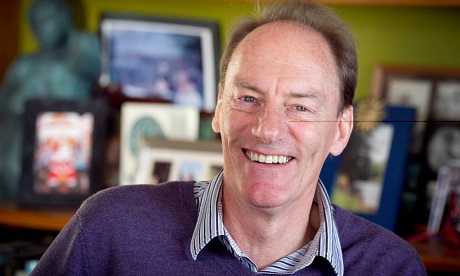“The Sheriff of Nottingham would be proud of how much tax we take from the poor to support the lifestyles of the rich,” John Minto told EcuAction, a Christchurch-based interfaith justice group.
EcuAction is lobbying for a fairer tax system.
“The rules are seriously unfair and need to change,” said Minto (pictured).
He says the system is loaded against poor people.
“Those on the lowest incomes pay much higher proportions of their income in tax than the wealthy and super-wealthy.”
EcuAction says that GST is at the core of New Zealand’s unfair system.
“We all pay GST … so it sounds fair.
“But a person in the lowest income decile pays 14 percent of their income in GST, because they have to spend all their income.
“Those in the highest income decile pay less than 5 percent of their income on GST because they are able to save and invest part of their income rather than spend it.”
Then there’s the imbalance in income tax.
IRD reports show many wealthy people declare incomes low enough to avoid the top income tax bracket.
The combined effects of unfair income tax and unfair GST show some horrid truths.
Minimum wage workers pay nearly 30 percent of their income in tax. The super-wealthy pay less than 5 percent of theirs.
This unfairness is hard-baked into our tax system.
Wage and salary earners pay tax on every dollar earned and every dollar spent. They cannot avoid tax. It’s taken out of pay before they get it. Retailers deduct it with every purchase.
But for the wealthy, tax is almost voluntary, Minto says. They have many ways to avoid or reduce their dues.
“It is morally wrong.
“The wealthiest 5 percent now own 37 percent of the country’s wealth and their share is growing at the expense of the rest of us.
“Meanwhile the poorest half of our society, who pay the highest rates of tax, have just 2 percent of the country’s wealth.”
Tax policy must change. “It’s what got us into this dreadful iniquitous mess.”
EcuAction’s solution
Abolish GST. Raise the $25 billion needed to replace it with three taxes.
Those “currently paying pocket-money levels of tax” would then be paying their share, says the interfaith justice group spokesperson Rev Brian Turner.
The Financial Transactions Tax would put about 0.1% tax – $2 a week for most – on all money transfers through banks and financial institutions.
This, plus savings from removing GST will “bring in large amounts from the high-value money flows in areas such as currency trading which take place each day,” Turner says.
He estimates it will bring the government $15 billion a year.
The Wealth Tax (targeting the top 5 percent) would bring in about $10 billion, he says.
The Capital Acquisitions Tax would be for those receiving cash windfalls – eg large inheritances.
All three tax types are commonly used in countries New Zealand compares itself to, Turner says.
Source
Additional readingNews category: New Zealand.




